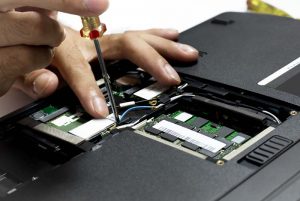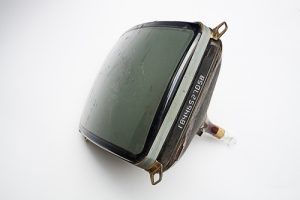 Proposed legislation dramatically overhauls Pennsylvania’s e-scrap program, adding a point-of-sale fee on certain devices and making manufacturers financially responsible for end-of-life management of all devices collected under the law.
Proposed legislation dramatically overhauls Pennsylvania’s e-scrap program, adding a point-of-sale fee on certain devices and making manufacturers financially responsible for end-of-life management of all devices collected under the law.

 Proposed legislation dramatically overhauls Pennsylvania’s e-scrap program, adding a point-of-sale fee on certain devices and making manufacturers financially responsible for end-of-life management of all devices collected under the law.
Proposed legislation dramatically overhauls Pennsylvania’s e-scrap program, adding a point-of-sale fee on certain devices and making manufacturers financially responsible for end-of-life management of all devices collected under the law.

Sarah Murray of the Wisconsin Department of Natural Resources speaks at E-Scrap 2017.
When it comes to CRT management, the profit is shaky and the industry is littered with horror stories of stockpiles and legal battles to determine who pays for cleanup.
 Stakeholders have come to settlements in lawsuits over an explosion caused by batteries from used electronics in North Carolina.
Stakeholders have come to settlements in lawsuits over an explosion caused by batteries from used electronics in North Carolina.
 Former employees of E-Waste Systems have yet to be paid over $240,000 in court-ordered compensation. Meanwhile, the U.S. Securities and Exchange Commission recently took action against the short-lived publicly traded company.
Former employees of E-Waste Systems have yet to be paid over $240,000 in court-ordered compensation. Meanwhile, the U.S. Securities and Exchange Commission recently took action against the short-lived publicly traded company.

Kyle Wiens of iFixit speaks at E-Scrap 2017.
Repair is a growing portion of the e-scrap field, and experts predict it will continue to increase as companies learn the revenue that can be realized by reusing rather than shredding certain good-quality components.

Joe Pickard speaks at the Resource Recycling Conference.
Ferrous and non-ferrous metals recovered from electronics and other sources have been volatile of late. Such uncertainty could continue as China considers limits on taking in some metal grades.
 A second e-scrap company has been released from an Arizona CRT abandonment lawsuit targeting upstream suppliers of the material.
A second e-scrap company has been released from an Arizona CRT abandonment lawsuit targeting upstream suppliers of the material.
Around 1,200 electronics recovery professionals gathered last week for North America’s largest sector event. Our photo slideshow offers a taste of the networking, education and industry connection that took place over three busy days.
 Bolstering domestic markets is a logical way to reduce exports, and that concept is behind a just-announced program that’s tied to an e-scrap certification.
Bolstering domestic markets is a logical way to reduce exports, and that concept is behind a just-announced program that’s tied to an e-scrap certification.
 There was some level of OEM influence in an e-scrap company’s decision to send tens of millions of pounds of CRT glass to the ill-fated Closed Loop Refining and Recovery, statements from Kuusakoski and Sony show.
There was some level of OEM influence in an e-scrap company’s decision to send tens of millions of pounds of CRT glass to the ill-fated Closed Loop Refining and Recovery, statements from Kuusakoski and Sony show.
